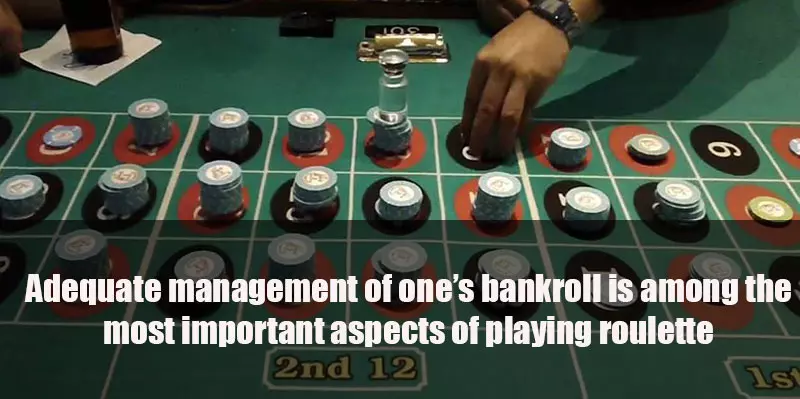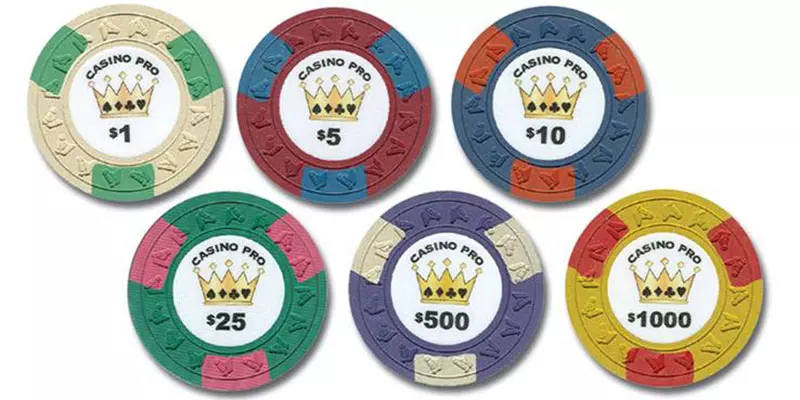Roulette has earned the reputation as one of the most popular casino games of all time, and it should come as no surprise that it remains one of the most played games in online and land-based casinos. Although several factors contribute to its immense popularity, the primary reason why it continues to stand out is that the rules of the game are relatively easy to learn, making it suitable for both seasoned and inexperienced players. In addition, players are presented with a great number of betting options to choose from. Moreover, roulette is even more exciting thanks to its dynamic, fast pace, particularly in brick-and-mortar casinos where the roulette tables are often the liveliest.
That being said, many lovers of the game, experienced ones included, dive into their betting sessions with a solid understanding of its rules, but what they often forget is that proper bankroll management is just as essential.
Whether you approach the game of roulette purely for entertainment or with the aim of making a profit, you should first put in place a proper bankroll management plan.
So, if you want the full peace of mind that you will not end up with a depleted bankroll, it would be better to read up on what roulette bankroll management entails.
Why is Money Management Important?
Adequate management of one’s bankroll is among the most important aspects of playing roulette. If you fail to take care of your bankroll properly, there is a good chance you will leave the roulette table empty-handed without turning any profit whatsoever. After all, winning is the goal of every player, experienced or not.
Deciding on a suitable plan of action in advance is essential as it instils a certain degree of discipline in players and prevents them from making rash decisions. Players often experience longer losing streaks, more frequently than some gambling aficionados might think. This may cause them to start chasing their losses by placing larger and larger wagers until they eventually deplete their entire bankrolls and are left with no money to bet.
Conversely, those who have learned to manage their funds properly often succeed in reducing their losses, maximising their wins, and thus generating a consistent profit while at the roulette table. Moreover, proper money management enables players to maintain their composure even when they sustain several losses in a row, allowing them to make informed decisions regarding their next bets.

Key Aspects of Money Management
Money management involves hard work and commitment. It also requires a good deal of discipline and preparation. Following the few basic rules listed below will enable players to maintain their self-control while at the roulette table and prevent them from exhausting their bankrolls.
Determining the Size of Your Bankroll
The first thing players need to do is determine the size of their monthly bankroll, or the amount of money they have set aside for playing roulette each month. To establish your bankroll size, you must examine your expenses carefully and decide on the amount of money you are comfortable losing per month. In other words, your roulette bankroll should consist of funds you do not need to live on.
Once you have decided how much you can comfortably lose per month, divide the overall sum into smaller portions for each betting session. For example, if you are comfortable losing £1,000 and plan on visiting the casino four times this month, your bankroll per visit should be no more than £250. The same applies if you intend to play online – you should not deposit more than a quarter of your monthly bankroll for a single betting session. If you finish the month with a profit, it is advisable to cash out half of your net profit and add the remaining half to the bankroll for the following month.
Players should also distinguish between their session stake – the amount of money they are allowed to spend during one sit-down at the roulette table – and the daily stake, which is the amount players may use within several sessions that take place during a single day.
It is worth noting that you determine the duration of the sessions; sometimes you might want to play for three hours, while on other occasions just for an hour. Roulette mavens can also set a weekly stake. Naturally, when you add all these sums together, you should arrive at your monthly bankroll.

If roulette players want better control over their funds, they should consider setting an upper limit on the spread of units they can wager during shorter periods of time.
Once the monthly gambling amount is decided, players should consider dividing it further into several smaller budgets following the above-mentioned principle. The same applies to the time casino enthusiasts spend at the roulette table. Instead of playing for several hours without interruption, roulette lovers should consider taking short breaks between different sessions so they do not end up asleep at the wheel.
On that note, you should keep your betting money separate from the funds allocated for bills, rent, food, and other necessary expenses. One of the best ways to ensure you do not spend money earmarked for other purposes is to maintain a separate bankroll for gambling. In this way, you will not feel tempted to keep dipping into your main bank account. An essential detail gambling enthusiasts should not forget is that roulette is a negative-expectation game, which means they will need to replenish their gambling bankroll fairly often.
Deciding on Your Base Betting Unit
Once you have determined the size of your bankroll per betting session, you need to decide on the size of your base betting unit – the amount of money you will stake with each wager. The size of the base betting unit correlates with the size of your bankroll.
You can choose any base betting unit that suits you. However, experienced roulette players recommend that the base betting unit should range between 2% and 5% of the overall bankroll for a given betting session. For example, if you have allocated £250 for a single betting session, it is best to play with a base betting unit of £5 – 2% of your total bankroll.
If you are new to the game, you might be more comfortable opting for a smaller base betting unit. The same applies to casino enthusiasts who are somewhat faint-hearted and do not feel like risking too much of their funds on a single stake.

If you settle on a small base betting unit while your bankroll is larger, there is almost no chance of suffering a devastating loss.
As you can see, a little planning is needed before you start playing roulette, but this will save you much hassle later. While deciding the cut-off point for your wagers, pay attention to the table limits of the chosen roulette variation. If you prefer playing it safe but the roulette table caters to high-rollers, you may need to find another game because of the higher minimum stakes.
Choosing a Roulette Variation with Better Odds
Each casino game has a built-in advantage that tips the scales in favour of the house, and roulette is no exception. This built-in advantage is called the house edge, and if casino enthusiasts want to enhance their chances of bagging heftier wins, they are advised to opt for roulette variants where the house edge is the lowest.
Generally, we can distinguish between two major variations of the game. American roulette has a higher house edge of 5.26% because the wheel contains both single-zero and double-zero pockets. Owing to the lack of a double-zero pocket, European and French roulette variations are much more advantageous for players, with the house edge standing at 2.70%.
While looking for a roulette table to play at, gambling aficionados are also advised to check whether the La Partage and En Prison rules are offered. When these special rules are in place, the house edge is trimmed down to 1.35%. Opting for such roulette variants is a wiser move simply because players’ bankrolls are likely to last longer.
Fortunately, given the enormous variety of roulette variants available online, players are unlikely to struggle to find games featuring these rules.
| European Roulette Odds and Probabilities | |||
|---|---|---|---|
| Bet Type | Bet Payout | Bet Probability | House Edge |
| Straight | 35/1 | 2.70% | 2.70% |
| Split | 17/1 | 5.41% | 2.70% |
| Street | 11/1 | 8.11% | 2.70% |
| Square or Corner | 8/1 | 10.81% | 2.70% |
| Six Line | 5/1 | 16.2% | 2.70% |
| Column | 2/1 | 32.4% | 2.70% |
| Dozen | 2/1 | 32.4% | 2.70% |
| Red / Black | 1/1 | 48.64% | 2.70% |
| Odd / Even | 1/1 | 48.64% | 2.70% |
| High / Low | 1/1 | 48.64% | 2.70% |
| American Roulette Odds and Probabilities | |||
|---|---|---|---|
| Bet Type | Bet Payout | Bet Probability | House Edge |
| Straight | 35/1 | 2.63% | 5.26% |
| Split | 17/1 | 5.26% | 5.26% |
| Street | 11/1 | 7.89% | 5.26% |
| Square or Corner | 8/1 | 10.53% | 5.26% |
| Five Line | 6/1 | 13.16% | 7.89% |
| Six Line | 5/1 | 15.79% | 5.26% |
| Column | 2/1 | 31.58% | 5.26% |
| Dozen | 2/1 | 31.58% | 5.26% |
| Red / Black | 1/1 | 46.37% | 5.26% |
| Odd / Even | 1/1 | 46.37% | 5.26% |
| High / Low | 1/1 | 46.37% | 5.26% |
| French Roulette Odds and Probabilities * | |||
|---|---|---|---|
| Bet Type | Bet Payout | Bet Probability | House Edge |
| Straight | 35/1 | 2.70% | 2.70% |
| Split | 17/1 | 5.41% | 2.70% |
| Street | 11/1 | 8.11% | 2.70% |
| Trio (0,1,2 / 0,2,3) | 11/1 | 8.11% | 2.70% |
| Four-Number (0,1,2,3) | 8/1 | 10.81% | 2.70% |
| Square or Corner | 8/1 | 10.81% | 2.70% |
| Six Line | 5/1 | 16.2% | 2.70% |
| Column | 2/1 | 32.4% | 2.70% |
| Dozen (P12, M12, D12) | 2/1 | 32.4% | 2.70% |
| Red / Black | 1/1 | 48.64% | 2.70% |
| Impair (Odd) / Pair (Even) | 1/1 | 48.64% | 2.70% |
| Manque (Low) / Passe (High) | 1/1 | 48.64% | 2.70% |
* Single-zero tables where the La Partage rule applies are considered the best option since this rule reduces the house edge on even-money bets even further to 1.35%.
Setting Up a Loss Limit
Determining a loss limit for yourself is crucial as it prevents you from chasing your losses and placing reckless bets whenever you experience longer losing streaks – something that is bound to happen from time to time. You are expected to set a loss limit for yourself in advance, before joining the roulette table or placing your first bet online, because you will then be less likely to make rushed decisions.
Players can choose any figure they are comfortable with – 20%, 30%, or 40% per betting session, for instance. In roulette, the loss limit per betting session should never exceed 50%. This limit protects players and enables them to retreat before depleting their bankrolls.
When players reach their self-imposed loss limit, they must quit the game, difficult though this may be on occasion. Experts recommend that you end the session if the first four spins are losing ones, while more conservative players can withdraw after losing on the first three spins.
Betting on the Action Numbers
Roulette Money Management
Gambling Discipline
ROI and Return to Player
Best Casinos to Play Roulette
If a losing streak of four consecutive spins occurs after you have already enjoyed a hot run, you are not necessarily required to quit the game since your loss limit protects you. In this case, you can either sit out one or two spins or leave the table after five straight losses.
It is extremely important not to start another betting session immediately after quitting the current one. Waiting ensures you are less inclined to try to compensate for the losses already sustained.
Another session straight away might not be an issue if you have inexhaustible funds, but this is rarely the case for casino enthusiasts.
Setting Up a Winning Goal
Setting a winning goal is just as important as deciding on a loss limit. After all, those who become too greedy often end up leaving the roulette table empty-handed. When it comes to roulette, inexperienced players are advised to draw the line after generating a net profit equal to 10% of their starting bankroll for the session. For example, if you start with £250, your winning goal will be £25. This might not seem impressive, but it is better than losing everything.
As players gain experience and become more proficient at roulette, they can slowly increase their winning goals to 25% or even 30% of their session bankroll. Like loss limits, winning goals should be determined in advance, before players join the game. Most importantly, once you have set a winning goal and a loss limit for yourself, you must stick to them, no matter what happens at the roulette table.
This is exactly where most roulette lovers – and gambling enthusiasts in general – hit a snag. When roulette fans score several wins in a row, they tend to get carried away by the profit they have accumulated and end up in the red.

When Should You Stop
As mentioned above, before you begin your roulette betting session, you should ensure you have a proper plan of action, which includes deciding on the win and loss limits you will follow.
One issue many roulette lovers encounter is that they continue betting because they want to see either of these limits reached.
If you no longer feel like wagering or you are already tired, you should not extend your betting session merely to reach the set limits. While betting on roulette, win and loss limits can be adjusted slightly and applied in a fairly flexible manner. However, this does not apply to cases where gambling aficionados have exceeded the set limits and simply cannot stop betting.
Implementing a Betting System
Implementing a betting system may also enable players to manage their bankrolls more effectively and, eventually, turn a profit. Generally, systems can be divided into two major categories: those based on positive betting progressions and those revolving around negative betting progressions.
Positive betting systems, such as the Paroli, require players to reduce the size of their stakes after a loss and increase it after a win. Negative betting systems, like the Martingale and the Fibonacci, call for the opposite – players increase their stakes after each losing bet and reduce them after each win. Using a betting system might help players recoup the losses they sustain during losing streaks. It is recommended to stick to systems where the betting progression is not overly aggressive, i.e., those that do not require you to dramatically increase the size of your wagers after a loss or a win.
Players should also remember that incorporating any betting system does not reduce the house edge or affect the outcome of the spins. However, systems allow players to approach the game methodically and organise their funds more efficiently.
| Martingale Betting System | |||
|---|---|---|---|
| Spin | Bet (units) | Outcome | Total Profit |
| 1 | 10 | LOSS | -10 |
| 2 | 20 | LOSS | -30 |
| 3 | 40 | WIN | 10 |
| 4 | 10 | WIN | 20 |
| 5 | 10 | WIN | 30 |
| 6 | 10 | LOSS | 20 |
| 7 | 20 | LOSS | 0 |
| 8 | 40 | LOSS | -40 |
| 9 | 80 | WIN | 40 |
| 10 | 10 | LOSS | 30 |
| 11 | 20 | WIN | 50 |
| 12 | 10 | LOSS | 40 |
| 13 | 20 | WIN | 60 |
Playing at a More Relaxed Pace
While many slots can be played at an extremely fast pace, table games are generally much slower. Among various casino classics, roulette is often the slowest. From a bankroll-management perspective, players might prefer slower-paced games as they generate fewer losses.
When choosing a table game, consider how quickly certain games pay out. Since roulette is typically played at a very slow pace, winnings are paid out more slowly. Even if you are betting on a roulette variation with a higher house edge, playing at a more relaxed pace could benefit your bankroll because you will suffer fewer losses each hour.
If you are playing a game with a high house edge, opting for minimum wagers and slower gameplay can help you play longer with your predetermined bankroll. Comparing a roulette game with a house edge of 2.7% to a blackjack variation with a house edge of 1% shows it is possible to incur greater losses in one hour playing blackjack.
Typically, roulette involves about 50 spins per hour. If you place stakes of £10, you will wager £500 over an hour, with an average hourly loss of £13.50. Meanwhile, during a blackjack game, players are usually dealt around 75 hands per hour, meaning they may wager more over the same period and potentially suffer larger losses.
While online roulette versions allow those who wish to play at a faster pace to do so, if you want to be more cautious with your money, take your time and play at a relaxed pace. If you rush into faster betting, even smaller wagers can result in bigger losses over time.
Roulette Winning and Losing Patterns
As you already know, the main types of roulette bets are inside bets and outside bets. No matter which bet type appeals to you, the house advantage remains the same. However, although the percentage of money you will lose to the casino is identical, the timeframes within which you pay this money to the casino can differ.
The reason is straightforward: the win and loss patterns of inside and outside bets do not behave in the same way. Players might select a Straight-up bet and fail to score a win over a dozen or more spins. Of course, the opposite scenario – winning early – is also possible.
Perhaps you already know that the discrepancy between actual results and expected ones is referred to as variance. The succession of random events – each spin of the roulette wheel – does not cling to the average, especially over shorter time spans.
It goes without saying that variance cannot be avoided, whether you have years of experience or are joining the roulette table for the first time. Depending on whether you are playing American- or European-style roulette, the odds of any individual number hitting remain 2.63% and 2.70%, respectively.
Since the chances of winning with such wagers are relatively small, particularly when compared to outside bets, it might sometimes take a long time before you score a win. To avoid going into the red, handle your finances properly and, of course, ensure you can withstand that period emotionally.

What Are the Effects of Proper Bankroll Management
As mentioned already, while playing casino games – roulette in particular – gambling enthusiasts are destined to lose to the house. An essential detail many players overlook is that although the odds of winning are 37 to 1 and 36 to 1 when they wager on a single number, they are paid at a rate of 35:1. As you can see, the payout odds are lower, ensuring that players receive less money than they stake during their betting session.
This is precisely how casinos maintain the upper hand over players at all times.
Although proper roulette money management can help players get the most out of their betting session, it is not a magical key to success. No money-management system or roulette strategy can overcome the edge the casino invariably holds.
What money management does instead is allow gambling enthusiasts to stay at the roulette table longer rather than blowing their funds on a handful of stakes. Additionally, roulette mavens who apply proper bankroll management will be less exposed to the impact of the house advantage on their funds in the long run.
Conclusion
Adequate management of your funds is among the most important aspects of roulette, regardless of whether you play from the comfort of your home or at a brick-and-mortar gambling venue. Money management is essential as it allows players to minimise their losses, accumulate consistent profits, and protect their bankrolls. It also prevents players from chasing their losses and making hasty decisions whenever they suffer a lengthy losing streak.



